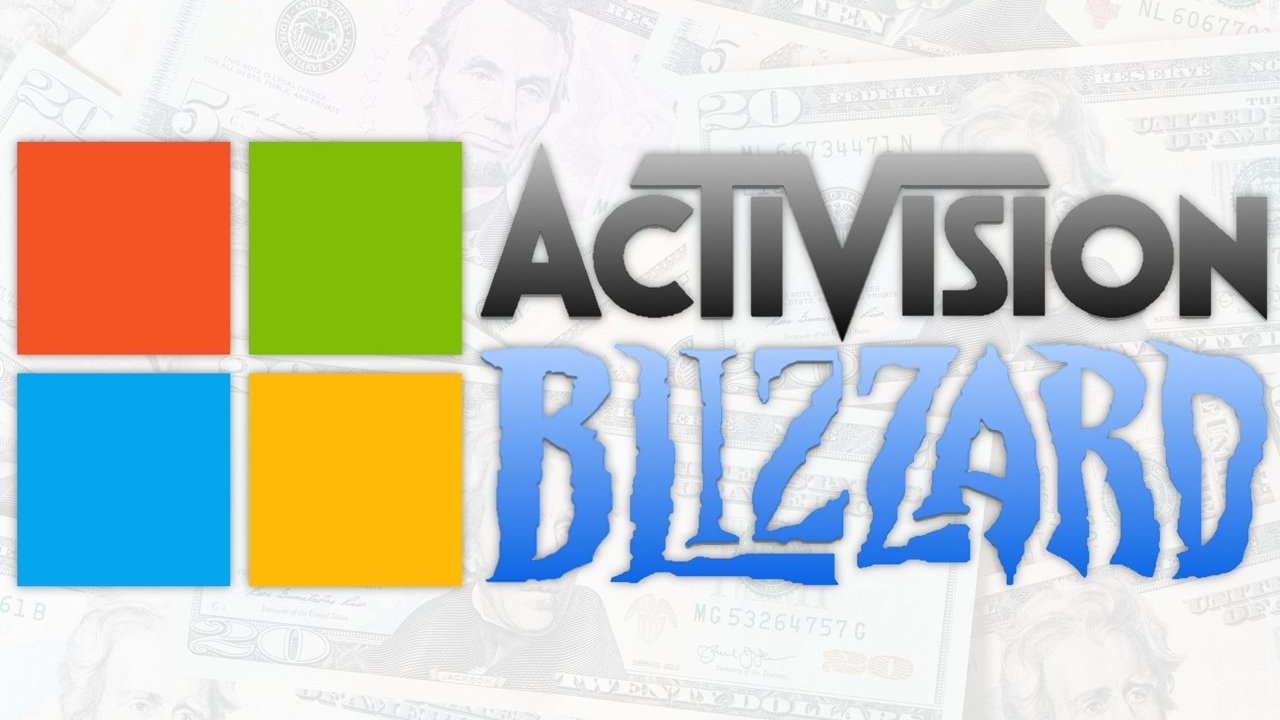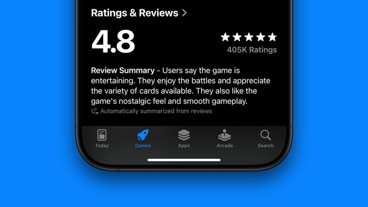The UK has reversed its ruling over Microsoft buying Activision, touting a trivial revision about cloud gaming that it claims to be a big deal.
Even Microsoft described the UK's Competition and Markets Authority (CMA) as having a "flawed understanding of this market and the way the relevant cloud technology actually works." But that grasp of the cloud may be what has led to the new deal being approved.
The UK now says that Microsoft can buy Activision, but the latter's cloud gaming rights must instead go to the independent firm, Ubisoft.
"With the sale of Activision's cloud streaming rights to Ubisoft, we've made sure Microsoft can't have a stranglehold over this important and rapidly developing market," said Sarah Cardell, Chief Executive of the CMA, in a statement. "As cloud gaming grows, this intervention will ensure people get more competitive prices, better services and more choice."
"We are the only competition agency globally to have delivered this outcome," she continued. "We delivered a clear message to Microsoft that the deal would be blocked unless they comprehensively addressed our concerns and stuck to our guns on that."
Cardell also criticized Microsoft and warned that other businesses should not emulate it. "[They] should be in no doubt that the tactics employed by Microsoft are no way to engage with the CMA."
"Microsoft had the chance to restructure during our initial investigation but instead continued to insist on a package of measures that we told them simply wouldn't work," she said. "Dragging out proceedings in this way only wastes time and money."
By giving up cloud streaming rights to get the deal, though, Microsoft has effectively lost little — or nothing. Cloud gaming is a small percentage of the overall market, and despite the CMA believing a risk that Microsoft could dominate, the company has only limited stake in cloud gaming.
The CMA did have other issues with the deal, as it identified "limited residual concerns." Still, it accepted Microsoft's "undertakings that will ensure that the terms of the sale of Activision's rights to Ubisoft are enforceable by the CMA."
While the UK originally blocked the deal, the European Union approved it in May 2023. Other countries also approved it, although the US Federal Trade Commission did try to prove such a deal would be anticompetitive.
 William Gallagher
William Gallagher







-m.jpg)






 Marko Zivkovic
Marko Zivkovic
 Christine McKee
Christine McKee
 Andrew Orr
Andrew Orr
 Andrew O'Hara
Andrew O'Hara


 Mike Wuerthele
Mike Wuerthele
 Bon Adamson
Bon Adamson




-m.jpg)



6 Comments
Once upon a time the dominant global supplier of computers, IBM, gave rights to an unknown startup, Microsoft, to provide the OS for the insignificant personal computer market. The rest is...
In this the CMA has acted correctly, taking expert advice that the cloud aspect of the gaming market is in its infancy and to hand Activision to Microsoft would be anti-competitive in an emerging market. The CMA told Microsoft so early on but Microsoft's lawyers lawyers thought they could get around the CMA. They failed.
What appears to be insignificant today can end up with the likes of Windows dominating personal computing for decades.
Well done the UK CMA.
If Microsoft was buying Unreal Engine that would be cause for alarm spending $69 billion on a content company not so much.
I'm not afraid of change. Usually change brings innovations that I like and hadn't expected. But I do worry that Microsoft may force Blizzard to stop selling games for macOS, since I purchase some of those games. On the other hand, Microsoft may bring more things to macOS, or to iPadOS. Or maybe I will be satisfied running Blizzard games in Microsoft's cloud streaming service. I get the impression that Microsoft really wants to sell games for mobile, including Apple's mobile OSs, but I'm not sure if that includes macOS. Apple sells a lot of laptops which (in my opinion) are "mobile devices" and which run macOS, so perhaps Microsoft sees macOS as part of their mobile future. I'm sure it helps that all macOS devices have the same processors as iPads.
Will the names of the games that move from Blizzard to Microsoft be "rebranded", such as "Microsoft World of Warcraft." Or will we see a double branding, such as "Microsoft Blizzard World of Warcraft"?
In my opinion, the trademarks of "Activision" and "Blizzard" have been bogged down by scandals for several years, so Microsoft may be best advised to dump the names, but to keep those trademarks in their back pockets for possible future use. Perhaps Microsoft can keep the word "BlizzCon" for the annual conference. "MicrosoftCon" has a negative sound.